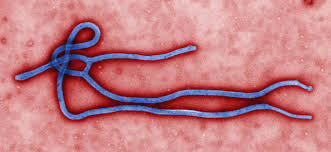
The death toll in West Africa from the Ebola virus continues to rise, according to the World Health Organization. The agency reported on Saturday that the death toll is 6,928, which is a jump of more than 1,200 deaths since the previous report that was issued just a few days earlier.
The large jump in the death toll appears to be due to the inclusion of previous deaths that had not been reported.
Except for 15 deaths, all the deaths from Ebola have occurred in the West African countries of Guinea, Sierra Leone, and Liberia. Two deaths have occurred in the United States, both to individuals who contracted Ebola in Africa. Other countries that have been directly affected by the epidemic are Mali, Senegal, and Nigeria.
In humans, Ebola is spread only by direct contact with blood of body fluids from someone who has been infected and is showing symptoms of the disease.
The outbreak started in a forested area of southeastern Guinea in March. Since then, just over 16,000 people have become infected by the virus.
This is the largest outbreak of Ebola virus, also called Ebola hemorrhagic fever. The disease first occurred in 1976 in Sudan and was identified as a new disease later that year. Another outbreak in 1976 occurred in what is now the Democratic Republic of the Congo. From 1976 through 2013, there were only 1,716 confirmed cases.
There is no specific cure or vaccine available for Ebola as yet. However, several patients have been treated with antiviral drugs on an experimental basis. Several other patients who contracted the disease have been treated with either whole blood or purified blood serum from people who survived a bout of Ebola. The blood or serum is thought to contain antibodies against the virus.
A number of pharmaceutical firms are working on a vaccine against Ebola.



